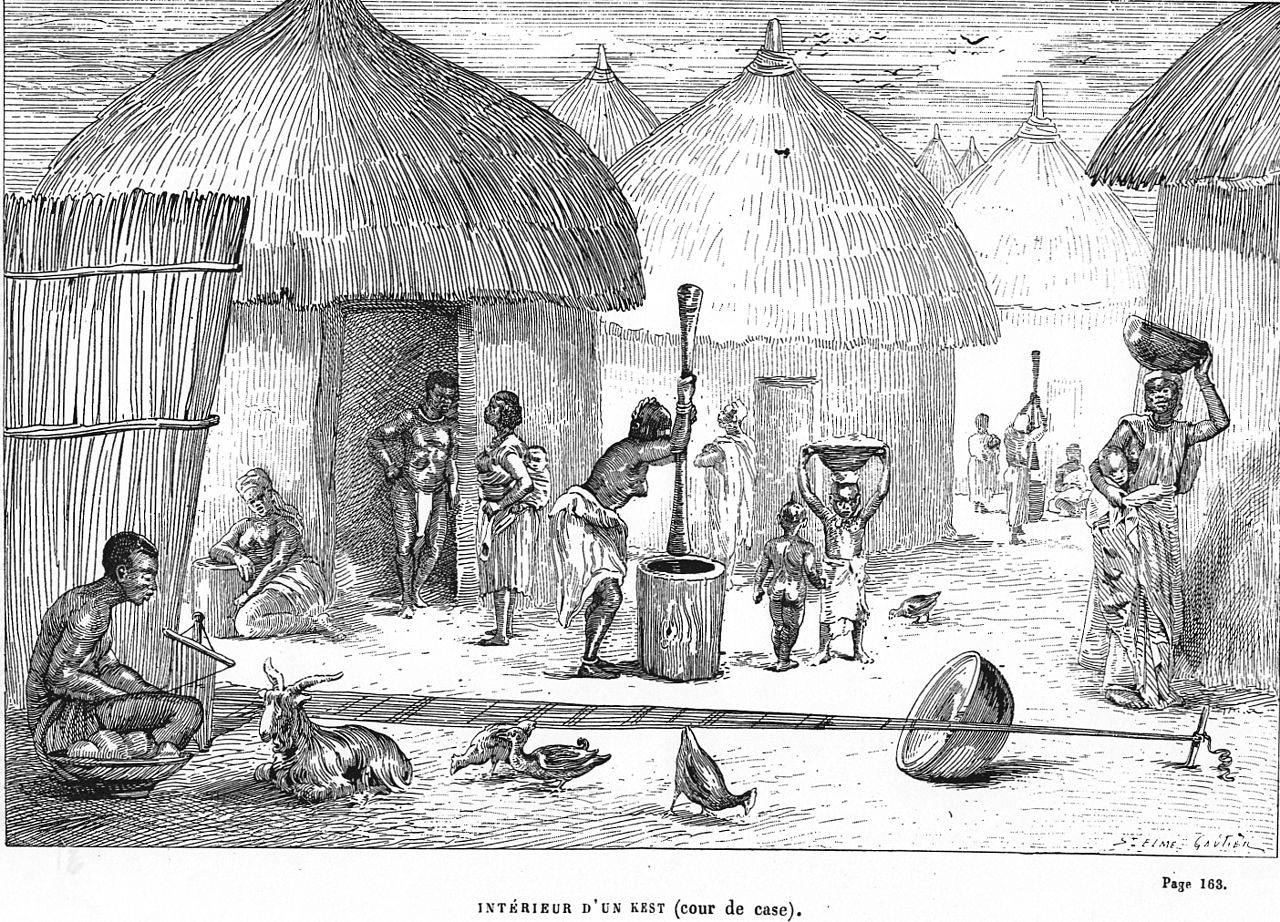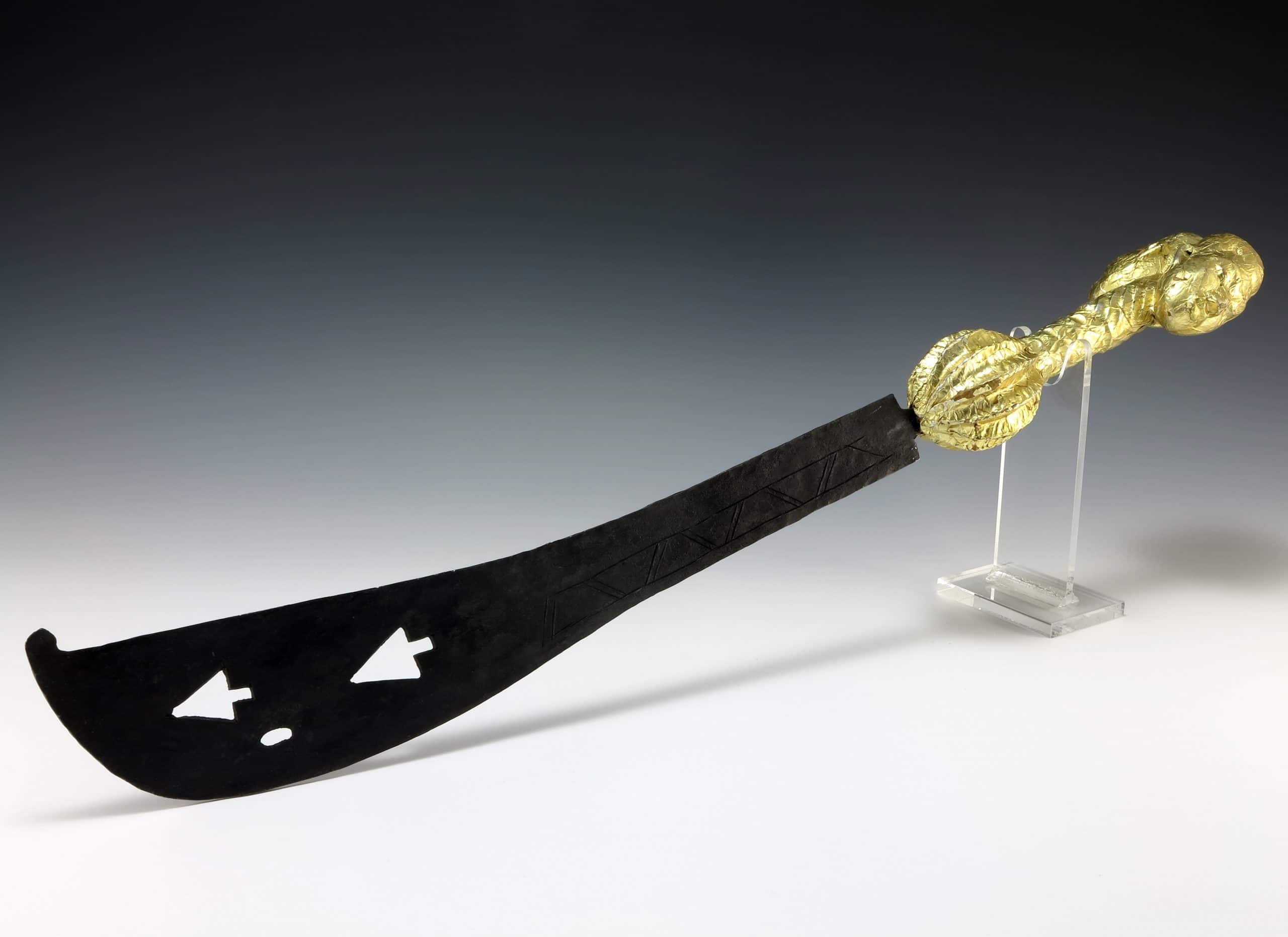
Akrafena, Ceremonial sword used by the Ashanti.
Sword Ceremonial Sword made of iron painted black with two tree openings and one small oval opening near the large end of the blade. The hilt is made from wood, carved with two heads at the end. The hilt is covered in a gold foil. Gift of Samuel Ernest Quarm, Ambassador of Ghana, 1975.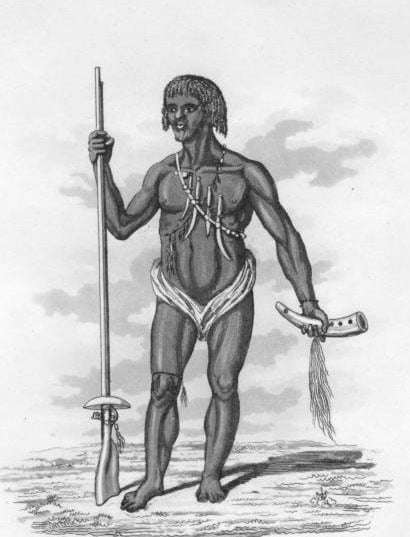
Ashanti Kingdom soldier, c. 1824, by Joseph Dupuis
C. Williams - New York Public Library [1] Joseph Dupuis, Journal of a residence in Ashantee, comprising notes and researches relative to the Gold Coast, and the interior of Western Africa, chiefly collected from Arabic mss. And information communicated by the Moslems of Guinea; to which is prefixed an account of the origin and causes of the present war, planche 8. An Ashanti soldier
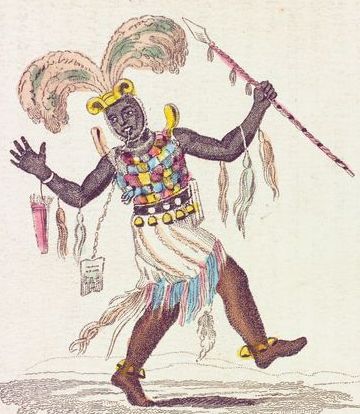
Ashanti Military Field Marshal, c. 1819, by Thomas E. Bowdich
Bowdich, T. Edward - "Ashantee captain in his War Drefs [Dress]" by Bowdich, T. Edward, "In: Mission from Cape Coast Castle to Ashantee, with a statistical account of that kingdom, and geographical notices of other parts of the interior of Africa." (published 1819) "Ashantee captain in his War Drefs [Dress]"
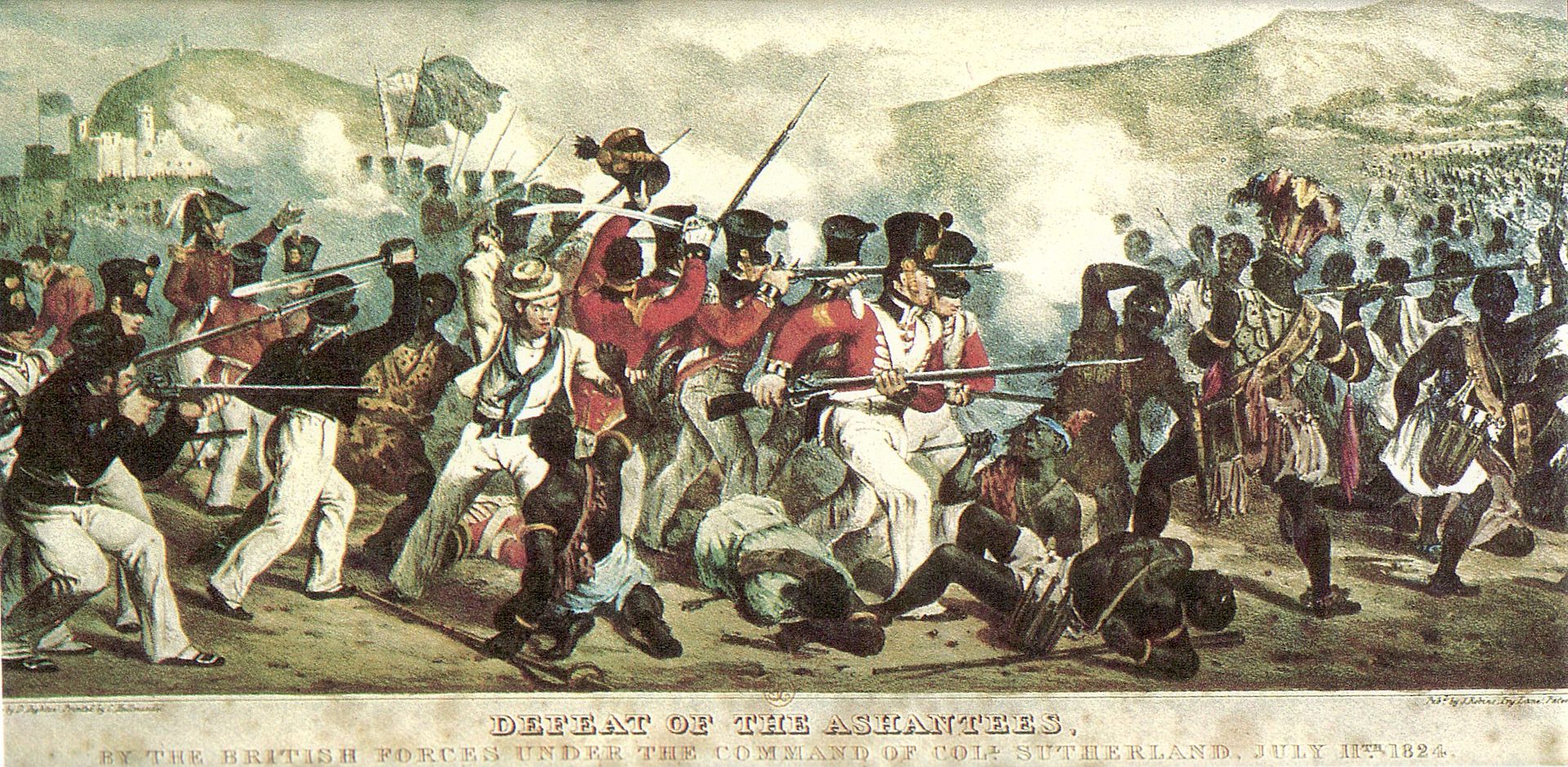
The Ashanti Kingdom army
The Ashanti Kingdom army engaged with British forces under the command of Col. Sutherland, July 11, 1824. Defeat of the Ashantees, by the British forces under the command of Coll. Sutherland, July 11th 1824.
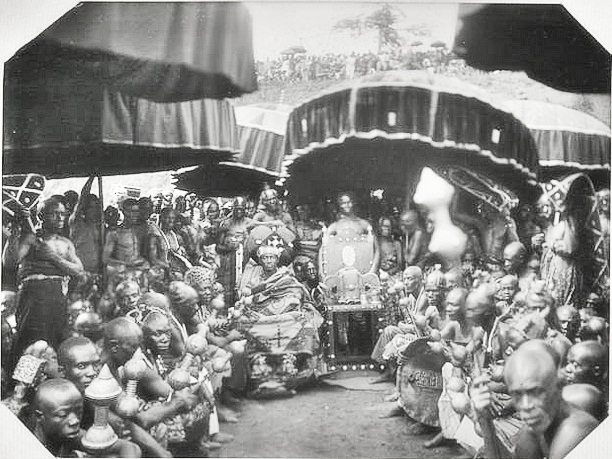
Golden Stool (Sika dwa) in the Ashanti Kingdom, 1935
Asantehene with his immediate Elders in position awaiting His Excellency's visit. The Golden Stool can be seen on his immediate left.
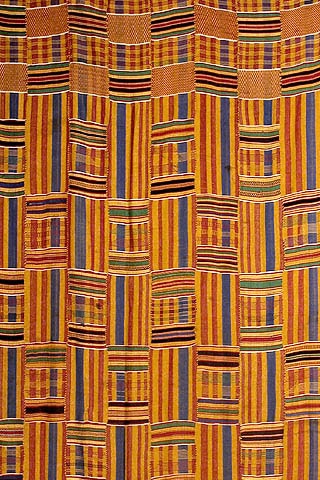
Kente cloth
Kente cloth, the traditional garment worn by Ashanti royalty, has been widely adopted throughout the Ashanti Kingdom
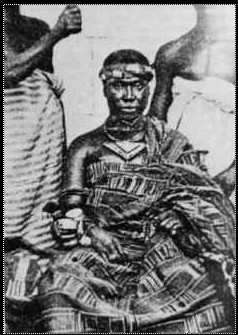
Prempeh I, Asantehene from 1888 to 1931
Kwaku Dua III Asamu or Nana Akwasi Agyeman Prempeh I (1872-1931), king (Asentehene) of the Ashanti Confederacy in West Africa.

Princes Kwasi Boakye and Kwame Poku, c. 1840.
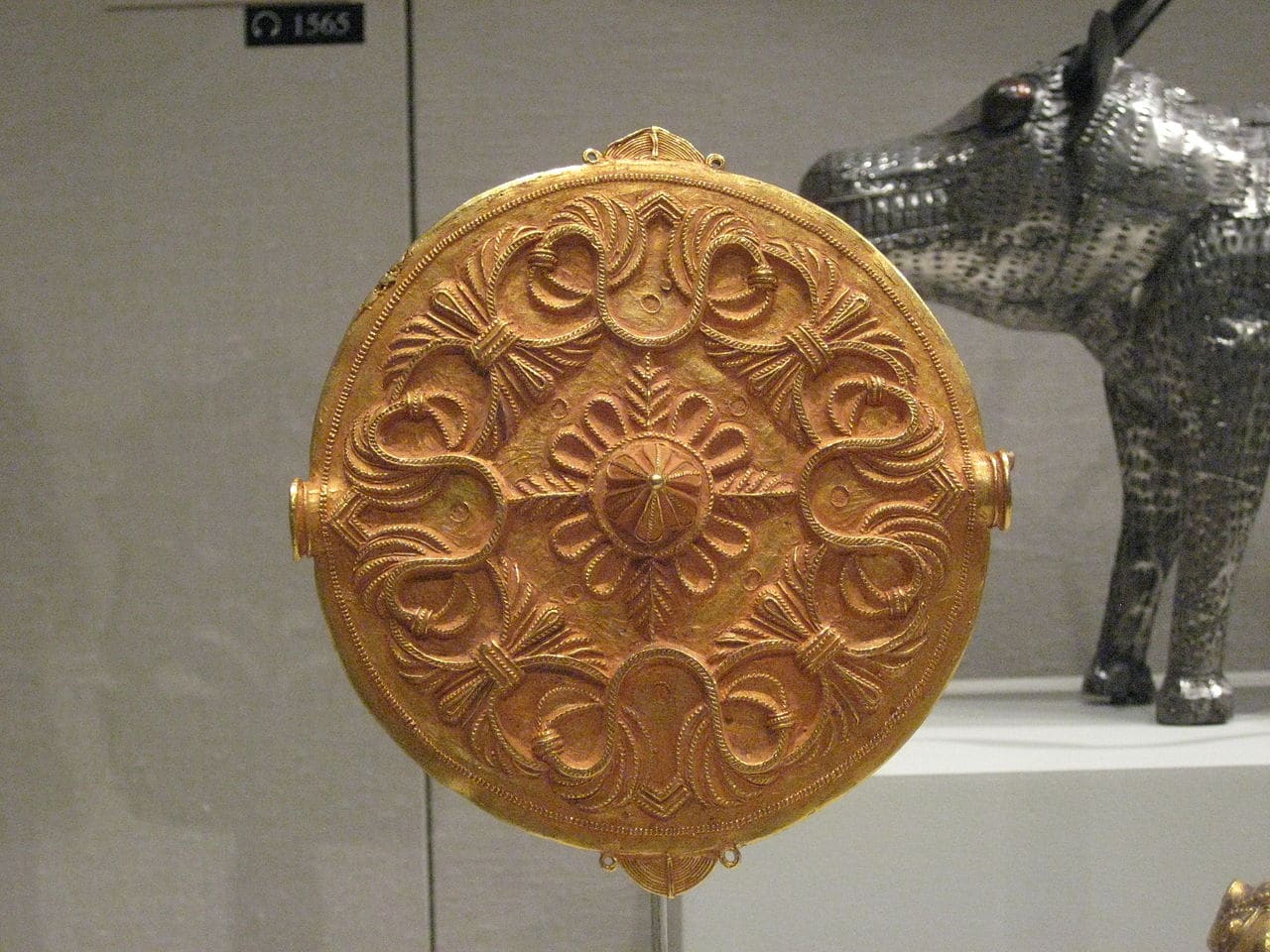
Ashanti soul washer badge or Akrafokonmu
Ashanti soul washer badge or Akrafokonmu, 18th century Ghana is part of an area that was a major source of gold for European and Islamic markets prior to the discovery of the metal in the Americas. The Asante and other rulers there maintained large courts of officials. One group of high-ranking attendants at court participated in ceremonies glorifying the king wore a special gold disk known as a "soul-washer's badge." Ghana, Asante group, Akan peoples 18th - 19th century Gold Item number: L.1982.92

Golden mask property of Asantehene, Kofi Karikari

Ashanti yam ceremony in the Ashanti Kingdom, 19th century by Thomas E. Bowdich.
